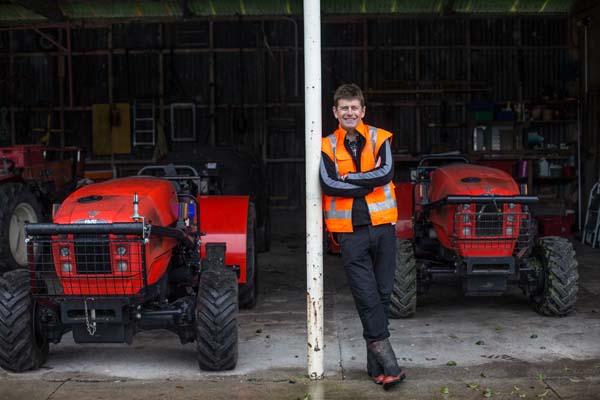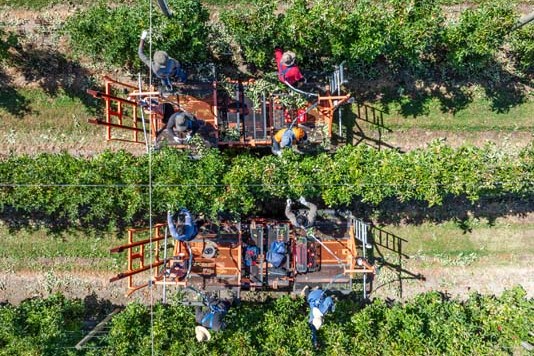By Anne Lee
Understanding the financials, the details of the contract, the what-ifs and importantly if your goals and values are aligned to your farm owners are all key to the likely success of a contract milking agreement.
DairyNZ extension partner Alice Reilly says having a clear understanding of what’s likely to drop out the bottom of your budget in terms of profit is far more important than the top line contract rate.
Understanding the costs and carrying out a detailed budget is a must before signing on the dotted line, she says.
That will mean digging into the detail of what’s included in the contract and what’s been achieved on the farm before.
“You need to ask plenty of questions so you have a realistic idea of where the costs come from, what they’ve been in the past and what’s likely.
“That means asking for historical costs – asking the farm owner or talking with previous contract milkers or sharemilkers.
“Ask to see the electricity bill for the shed from the last couple of years, find out how often the liners will need to be changed and if they stipulate which ones – that kind of detail can make a big difference to what actually happens compared with what you might assume for your budget.”
Then understand any physical limitations of the farm to achieving predicted milk production – is the budgeted production realistic, how does it compare with previous seasons and is there an opportunity for you to apply your skills and beat the budget?
What is the infrastructure like – the farm dairy, technology, how many staff will it take to milk, how reliable is the irrigation and how labour-intensive is it, how much pasture renovation is going on or level of cropping?
It’s important to get that level of detail so you can more accurately predict the profit that drops out of the budget.
DairyNZ has a budgeting spreadsheet that allows a contract milking budget to be compared to a farm management role.
Just as for any other farming business, contract milking has a top line – milk income and other income which may be livestock.
It also has expenses which include farm working expenses such as motorbike repairs and maintenance, staff wages, fuel, farm dairy electricity, detergent and any other costs included in the contract.
But the budget will also include costs such as insurance, ACC payments, administration such as accountant costs.
Added to those will be interest, tax, depreciation and drawings.
It’s important to understand these additional costs and the effect they have on the final bottom line once all of the costs are subtracted from total income.
The example compares a contract milker with a farm manager on the same farm with the same standard of living.
The contract milker has $58,950 as a cash surplus available for investment.
As a farm manager the risks are lower and the only costs are the personal costs of the contract milker and their family.
But all of the living costs such as drawings, vehicle, fuel, power and phone come out of tax-paid income with much fewer opportunities for tax benefits and to save using business-related discounts.
The farm manager in the example has a cash surplus of $16,101 for investment which gives the contract milker almost a $43,000 advantage.
It’s up to each individual to weigh up the pros and cons of each situation, calculate the benefit and then decide if it’s enough to warrant the additional risk and workload of taking on the contract.
There can be significant financial gains but there are plenty who aren’t making a significant margin and those who aren’t making any headway at all.
Carrying out a sensitivity analysis looking at key factors that could affect the budget is highly advised, Alice says.
What happens if production is 15,000kg milksolids (kg MS) below budget, what happens if the wages costs hike or you’re sharing nitrogen costs and they climb as they have done this season?
Those are the kinds of risks that come with running your own business as a contract milker so they have to be considered.
It’s important to seek advice and run through the numbers with a trusted independent party before signing an agreement.
A rural accountant or farm adviser will be able to talk through costs, know what the benchmarks are and will be able to advise on how to manage the financials, how to pay staff and prepare for tax.
As well as the financial aspect a lot of weight must be put on how well aligned you are personally and from a farm systems approach.
If you’ve been used to higher input systems a low-input system may not fit with the way you like to farm and you could find yourself constantly butting heads with the owner.
You may like input and support from the farm owner on a regular basis and your farm owner is looking to get right away from the farm or it may be you like more autonomy and the farm owner wants to be involved in a lot of hands-on farming.
Having those conversations right upfront is vital to making a successful working arrangement.
Sharing your short and longer-term goals upfront can help set the mindset for the relationship too.
Honesty, integrity and a policy of no surprises on both sides of the relationship is always a good place to start.
“The aim is to have an agreement where both parties feel they’re getting a fair deal and it’s then about delivering on that – having good lines of communication.”





